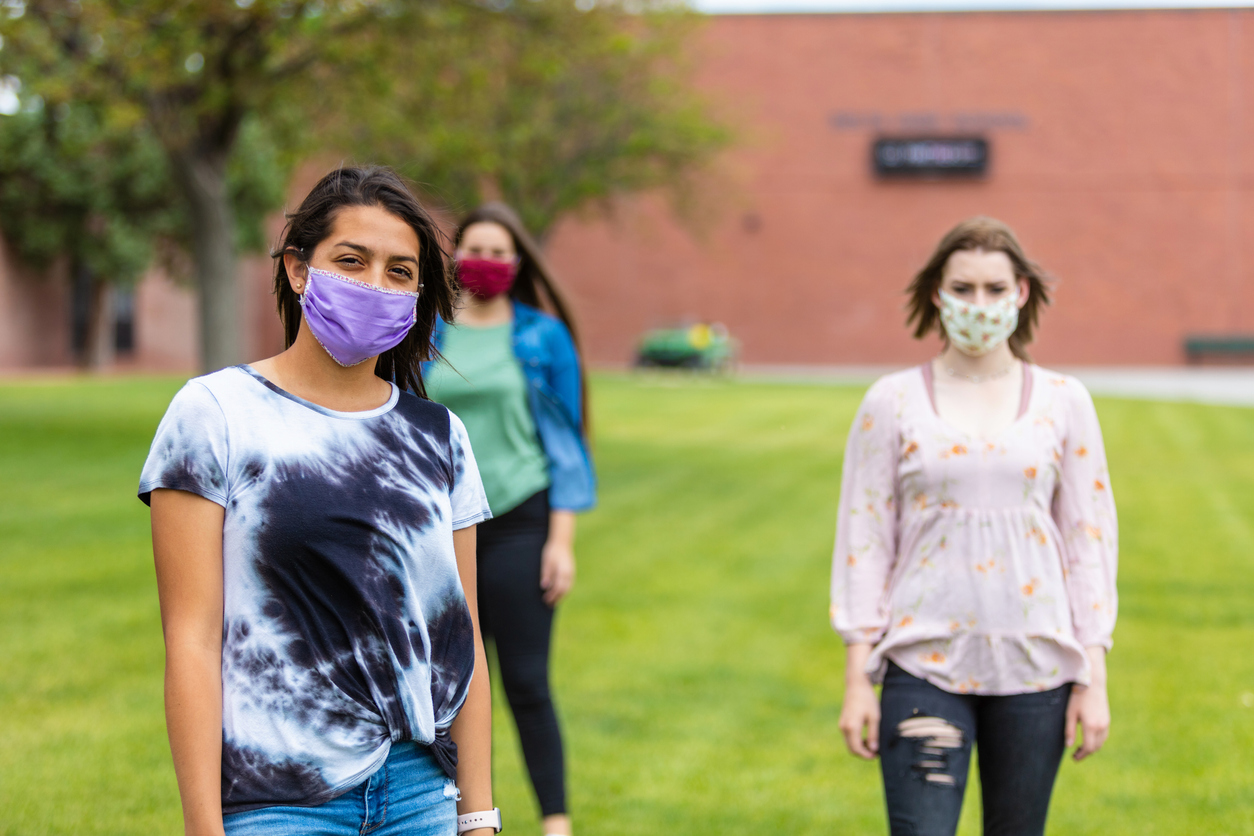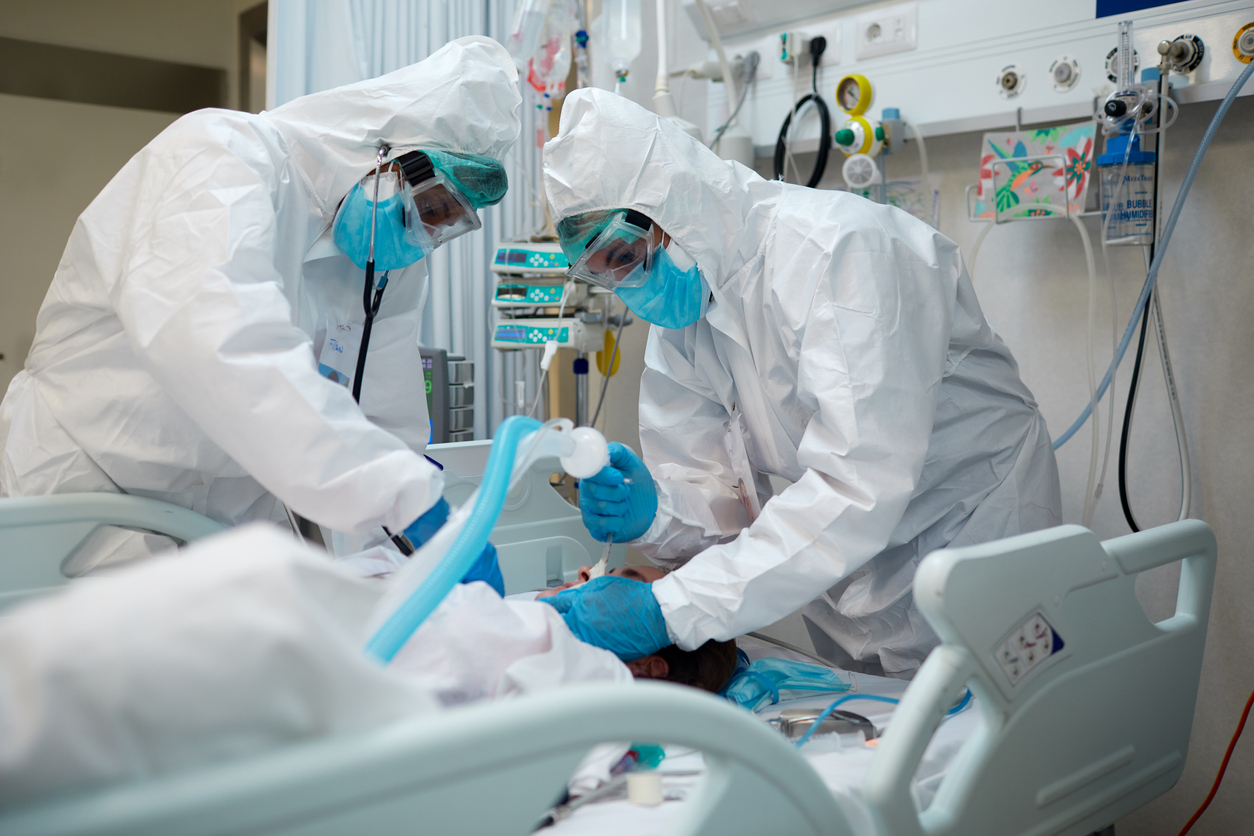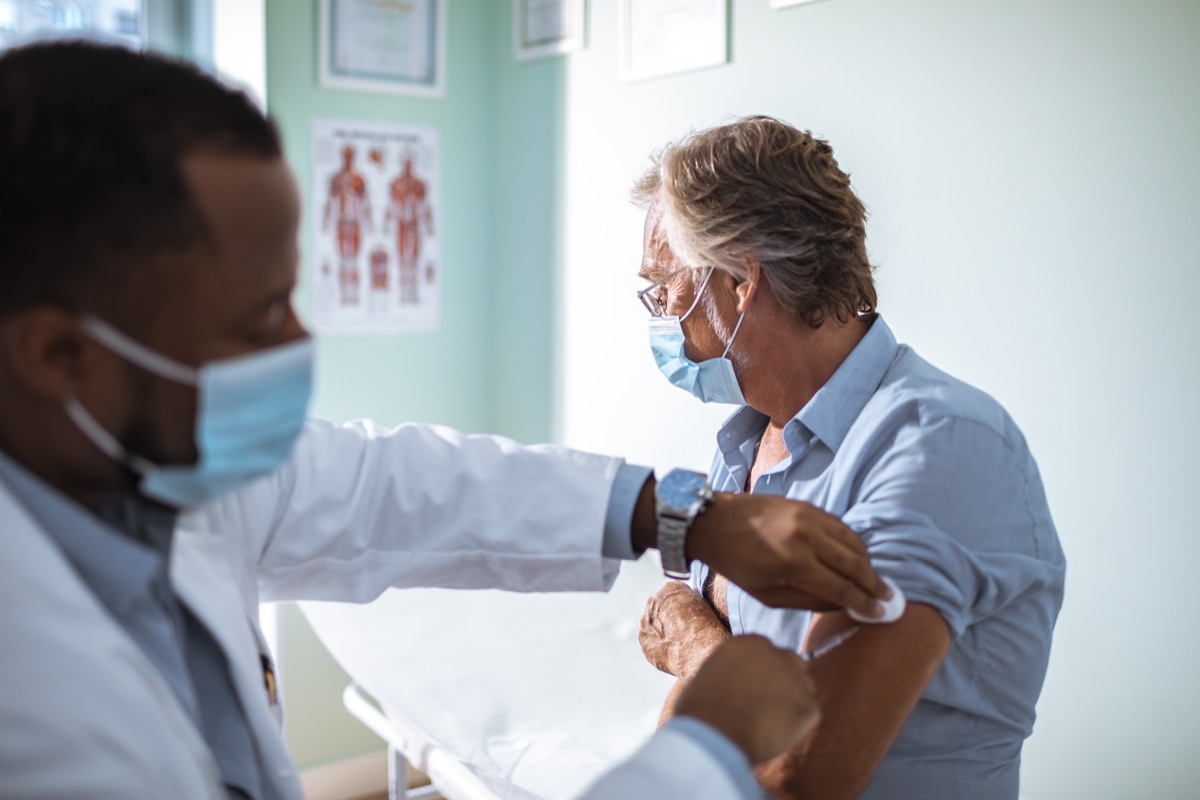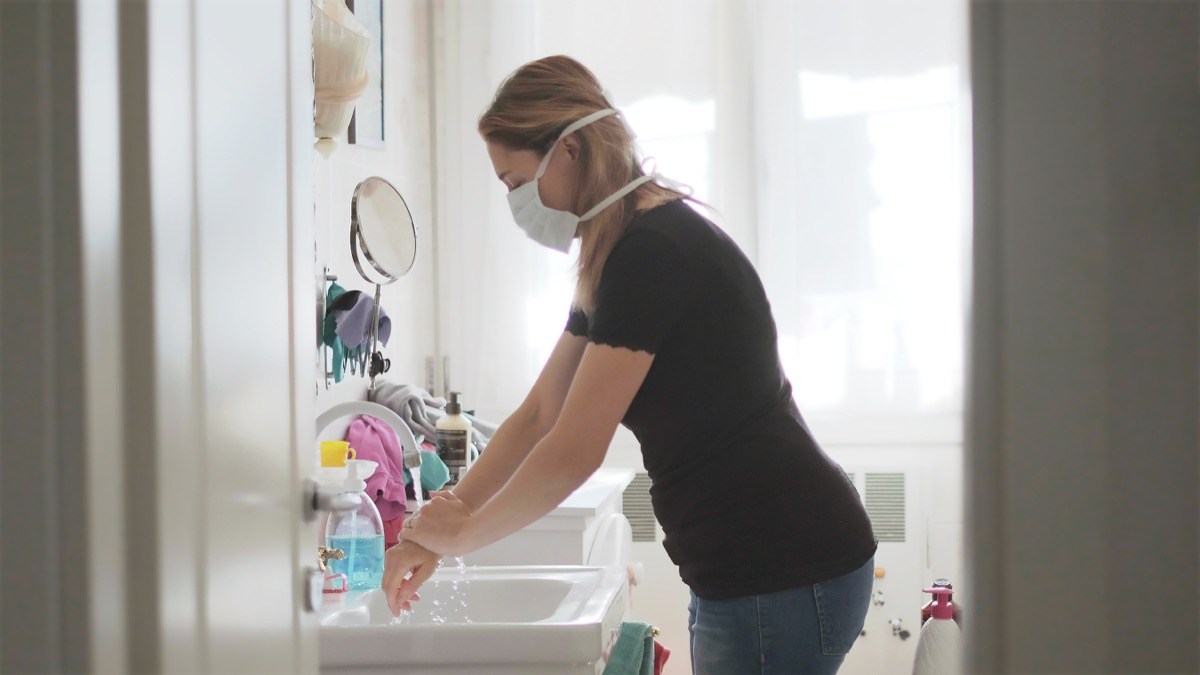During a livestreamed interview with Gov. Gavin Newsom of California on Dec. 30, the top infectious disease expert admitted that he was not surprised the new strain of the virus had already made its way within American borders. But he also revealed that research completed by colleagues across the Atlantic had provided another small piece of good news: those who have antibodies from previously contracting COVID were most likely protected. “The…thing that they’ve noted in the U.K. is that people who have been infected [by the previously dominant strain] don’t seem to get re-infected by this [mutation], which means that the immunity that’s given to you when you get infected is protective against this particular strain,” Fauci explained. The National Institute of Allergy and Infectious Diseases (NIAID) director went on to assuage fears that the new mutation might derail efforts to end the pandemic. “The overwhelming majority of mutations are irrelevant…They don’t have any impact on any important function of the virus,” he said. “[Only] every once in a while [do] you get a mutation that does impact a function of the virus.” Read on to see how else the new variant of COVID is different from the original, and for more on what warning signs of the virus might be serious, check out If You Have One of These COVID Symptoms, the CDC Says to Call 911. Read the original article on Best Life. Preliminary research indicates that the mutated U.K. strain—which is officially known as the B.1.1.7 variant—may be as much as 70 percent more contagious than previous strains, allowing it to spread faster among the population. “We now have high confidence that this variant does have a transmission advantage over other virus variants that are currently in the U.K.,” Peter Horby, MBBS, chair of the U.K.’s New and Emerging Respiratory Virus Threats Advisory Group (NERVTAG), said on Dec. 21, according to Reuters. And for more on how to keep yourself safe, check out If You Don’t Have This in Your Home, You’re at Higher Risk for COVID. Fortunately, research has also found that while the virus spreads more quickly, it doesn’t appear to have an increased mortality rate. “It looks pretty clear from the U.K. group that, in fact, the transmissibility of the virus is more efficient than the transmission of the standard virus we’ve been dealing with up to now,” Fauci said during his discussion with Newsom. “Namely, it’s just able to bind to the receptors on cells better and therefore it’s transmitted better. There’s no indication at all that it increases the virulence, and by virulence, I mean the ability to make you sick or kill you. It doesn’t seem to make it more strong in that regard.” And for signs you could have a serious coronavirus case, check out If Your Symptoms Appear in This Order, You May Have Severe COVID. During their conversation, Fauci also reiterated another important distinction researchers have found about the U.K. variant: the vaccines already being administered are still effective against the new COVID strain. “[The B.1.1.7 variant] doesn’t seem to evade protection that’s afforded by the antibodies that are introduced by vaccines,” Fauci explained. And for more on what it will be like to get your shot, check out Dr. Fauci Just Debunked the 4 Biggest Myths About the COVID Vaccine.ae0fcc31ae342fd3a1346ebb1f342fcb Just because there’s a slightly different version of the virus spreading doesn’t mean you need to change your health precaution routine: social distancing, mask wearing, and hand washing are all still important to keep yourself safe. “The things we’ve been talking about all along, we just need to make sure we do it,” Fauci told Newsweek on Dec. 29 of the new strain, before it was found in the U.S. “Wearing masks, keeping distances, avoiding congregate settings, doing things outdoors more than indoors, washing your hands frequently—those are the things that stop any virus, regardless of whether it mutates or not.” And for the one health measure you can hold off on, check out The One Thing You Can Stop Doing to Avoid COVID, According to Doctors.



